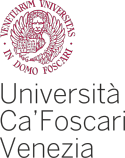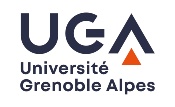ATLAS Project
 |
 |
 |
 |
 |
 |
 |
||
FINANCIACIÓN:
Grant ATLAS: Studying symbiotic scenarios linking Heritage assets and green areas to prepare Historic Cities to face Climate Changes. (PCI2024-153441) funded by MICIU/AEI/10.13039/501100011033 and cofunded by the European Union.
Proyecto ATLAS: Studying symbiotic scenarios linking Heritage assets and green areas to prepare Historic Cities to face Climate Changes (PCI2024-153441) financiado por MICIU/AEI/10.13039/501100011033 y Cofinanciado por la Unión Europea.
Studying symbiotic scenarios linking Heritage assets and green areas to prepare Historic Cities to face Climate Changes.
Climate change (CC) is triggering dangerous temperature increases, floods, droughts and fires in historic cities and their environments that affect citizens and Cultural Heritage (CH) health. In this context, green infrastructure (GI) emerges as a sustainable solution to mitigate the impact of CC and enhance urban livability. However, without studying the symbiotic relationship between CC and CH, GI expansion could affect the preservation of Immovable CH. To address the challenge of implementing sustainable policies to face climate change in Historic Cities, ATLAS employ interdisciplinary approaches and digital technologies for: 1) modeling the scenarios of CC risks in Historic Cities, 2) managing Immovable CH and GI and, 3) predict potential impacts. ATLAS tools based on satellite imagery, Geographic Information Systems, opinion of citizen managers, and human behavior computational simulations, allow to assess CC risk and look for the best resilience solution. ATLAS municipalities managers Will enable to identify and evaluate risks, understand human behavior during emergencies, and minimize damage in Immovable CH caused by CC as pollution, urban heat islands, floods, and fires. ATLAS will conduct studies in five Historic Cities (Seville, Antequera, Valencia, Treviso, and Grenoble) in three European countries (Italy, Spain, and France) to validate these tools in various scenarios (Mediterranean, Mountain and Continental). ATLAS interdisciplinary team to design tools and ensure the functionality and usability, brings together: 1) universities experts in CH diagnosis and risk assessment (UPO, UNIVE), GI (UNIVE), and digital technologies for modelling risk management (UGA, UPO); 2) experts in CH Conservation (IVCR+i); 3) Hazard experts (Alpine Natural Hazards Center); and 4) municipalities of Treviso and Antequera. The beneficiaries of this project are citizens which municipalities integrates ATLAS tools into their training programs, management strategies, and CC contingency plans to improve the citizen and CH resilience.
Estudio de escenarios simbióticos entre bienes patrimoniales y áreas verdes para preparar las ciudades históricas frente al cambio climático.
El cambio climático está ocasionando incrementos alarmantes de temperatura, así como inundaciones, sequías e incendios que afectan gravemente a las ciudades históricas y sus entornos, poniendo en riesgo la salud de los ciudadanos y la conservación del Patrimonio Cultural. En este contexto, las infraestructuras verdes surgen como una solución sostenible para mitigar el impacto del cambio climático y mejorar la calidad de vida urbana. Sin embargo, sin un estudio adecuado de la relación simbiótica entre el cambio climático y el patrimonio cultural, la expansión de las infraestructuras verdes podría poner en riesgo la preservación del patrimonio cultural inmueble.
Para abordar el desafío de implementar políticas sostenibles frente al cambio climático en las Ciudades Históricas, ATLAS emplea un enfoque interdisciplinario y tecnologías digitales para: 1) modelar los escenarios de riesgos del Cambio Climático en las Ciudades Históricas, 2) gestionar el Patrimonio Cultural Inmueble y las infraestructuras verdes, y 3) predecir los potenciales impactos. Las herramientas de ATLAS, basadas en imágenes satelitales, Sistemas de Información Geográfica, la opinión de los gestores municipales y las simulaciones computacionales del comportamiento humano, permiten evaluar el riesgo del cambio climático y buscar la mejor solución de resiliencia.
ATLAS permitirá a los gestores municipales identificar y evaluar riesgos, entender el comportamiento humano durante emergencias y minimizar los daños causados por el Cambio Climático, la contaminación, las islas de calor urbanas, las inundaciones y los incendios sobre el Patrimonio Cultural Inmueble.
El proyecto ATLAS tomará como casos de estudios cinco Ciudades Históricas (Sevilla, Antequera, Valencia, Treviso y Grenoble) de tres países europeos (Italia, España y Francia) para validar estas herramientas en diversos escenarios (Mediterráneo, Montaña y Continental). El equipo interdisciplinario de ATLAS, encargado de diseñar las herramientas y asegurar su funcionalidad y usabilidad, reúne a: 1) Universidades expertas en diagnóstico y evaluación de riesgos del Patrimonio Cultural (UPO, UNIVE), infraestructuras verdes (UNIVE) y tecnologías digitales para la modelización de la gestión de riesgos (UGA, UPO); 2) expertos en Conservación del Patrimonio Cultural (IVCR+i); 3) expertos en peligros (Centro de Peligros Naturales Alpinos); y 4) los municipios de Treviso (Italia) y Antequera (España).
Los beneficiarios de este proyecto son los ciudadanos cuyas municipalidades integran las herramientas de ATLAS en sus programas de formación, estrategias de gestión y planes de contingencia frente al cambio climático, con el fin de mejorar la resiliencia tanto de los ciudadanos como del Patrimonio Cultural.
Étude de scénarios symbiotiques reliant les biens patrimoniaux et les espaces verts pour préparer les villes historiques à faire face aux changements climatiques
Le Chagement Climatique (CC) est la cause d’augmentation dangereuse des températures, d’inondation, de sécheresse et d’incendie affectant les citoyens et le Patrimoine Historique (PH) des villes historiques. Dans ce contexte, les Espaces Verts (EV) semble être une bonne solution pour limiter l’impact du CC est améliorer la l'habitabilité des villes.
Cependant, sans étude symbiotique des relations entre CC et PH, l’extension des EV peut impacter la conservation du PH innamovible.
Pour relever le défi de la mise enoeuvre de politique durable afin de faire face au réchauffement climatique en ville, ATLAS utilize des approches interdisciplinaire et des technologie numérique pour : 1) modéliser des scénarios de risque du au CC em ville, 2) gérer les patrimoine innamovible et les espaces verts et 3) anticiper les imapcts potentiels.
Les outils ATLAS sont basés sur l'imagerie satellite, les systèmes d'information géographique, l'opinion des citoyens gestionnaires et les simulations informatiques du comportement humain, ils permettent d'évaluer le risque de CC et de rechercher la meilleure solution de résilience.
Les responsables des municipalités ATLAS seront en mesure d'identifier et d'évaluer les risques, de comprendre le comportement humain en cas d'urgence et de minimiser les dommages matériels causés par les CC tels que la pollution, les îlots de chaleur urbains, les inondations et les incendies.
ATLAS mènera des études dans cinq villes historiques (Séville, Antequera, Valence, Trévise et Grenoble) dans trois pays européens (Italie, Espagne et France) afin de valider ces outils dans différents scénarios (méditerranéen, montagneux et continental). L'équipe interdisciplinaire ATLAS, chargée de concevoir les outils et d'en assurer la fonctionnalité et la facilité d'utilisation, rassemble : 1) des universités spécialisées dans le diagnostic et l'évaluation des risques liés à la pollution atmosphérique (UPO, UNIVE), l'information géographique (UNIVE) et les technologies numériques pour la modélisation de la gestion des risques (UGA, UPO) ; 2) des experts en conservation de la pollution atmosphérique (IVCR+i) ; 3) des experts en risques (Alpine Natural Hazards Center) ; et 4) les municipalités de Trévise et d'Antequera. Les bénéficiaires de ce projet sont les citoyens et les municipalités qui intègrent les outils ATLAS dans leurs programmes de formation, leurs stratégies de gestion et leurs plans d'urgence pour améliorer la résilience des citoyens et des collectivités locales. (https://lig-membres.imag.fr/dugdale/general-information/projects/atlas-project/).
Members of the ATLAS Project:
Organisations:
Universidad Pablo de Olavide (UPO).
Université Grenoble Alpes (UGA).
Universitá Ca´Foscari Venezia (UNIVE).
Institut Valencià de Conservació, Restauració i Investigació (IVCR+i).
Ayuntamiento de Antequera (Spain).
Consiglio Comunale di Treviso (Italy).
Pôle Alpin Risques Naturels (France).
Research Team Members:
Pilar Ortiz Calderón: Principal Investigator (PI) of the team. Doctor of Chemistry. Professor at the University of Pablo de Olavide.
Julie Dugdale: Partner (PI) of the team. Doctor of Computer Science at the University of Grenoble Alpes (UGA).
Edy Fantinato: Partner (PI) of the team. Doctor Environmental Science at the University of Ca´Foscari Venezia (UNIVE).
Carole Adam: Doctor Artificial Intelligent. Associate Professor at the University of Grenoble Alpes (UGA).
Rocío Ortiz Calderón: Doctor of Architecture. Professor at the University of Pablo de Olavide.
Víctor Amadeo Bañuls Silvera: Doctor of Business Organisation and Marketing. Professor at the University of Pablo de Olavide.
Inmaculada Chuliá Blanco: Doctor of Restoration-Conservation. Technician at the Institut Valencià de Conservació, Restauració i Investigación of the Generalitat Valenciana.
Francesca Caterina Izzo: Associate Professor in Heritage and Conservation Science at the University of Ca´Foscari Venezia (UNIVE).
Macarena Tejada Tejada: Doctor of Geography and History. Professor at the University of Pablo de Olavide.
Elisabetta Zendri: Doctor Chemistry at the University of Ca´Foscari Venezia (UNIVE).
Work Team Members:
Mónica Moreno Falcón: Doctor of History. Professor at the University of Pablo de Olavide.
Laura Toro Murillo: Biologist. Research support technician at the University of Pablo de Olavide.
Stakeholders:
Gemma Contreras Zamorano: Doctor of Art History. Director of the Institut Valencià de Conservació, Restauració i Investigación of the Generalitat Valenciana.
Mario Conte: Mayor of Treviso (Italia).
Julio Maqueda Macías: Head of the Civil Protection Service of the Hon. Ayuntamiento of Antequera.
Carine Peisser: Project Manager. Pôle Alpin Risques Naturels











